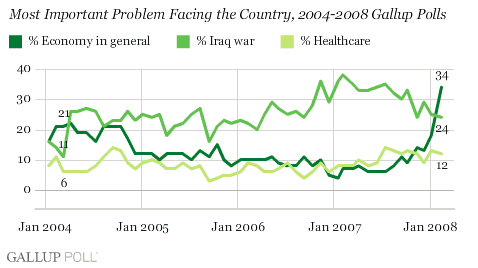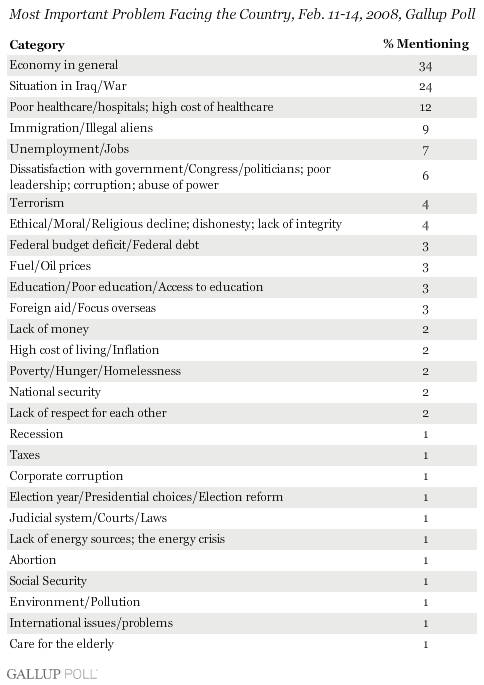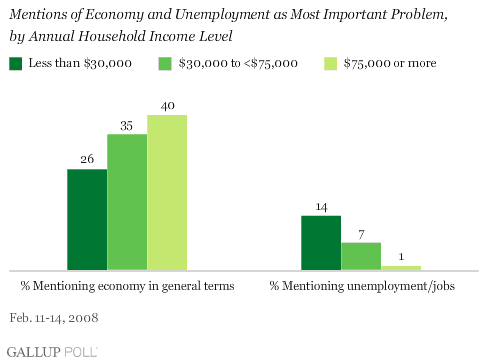PRINCETON, NJ -- The percentage of Americans mentioning "the economy" as the most important problem facing the country has sharply increased since early January. Now, for the first time since March 2004, the Iraq war is not the No. 1 problem.

The latest Â鶹´«Ã½AV Poll, conducted Feb. 11-14, finds 34% of Americans mentioning "the economy" in general terms as the most important problem facing the country. That is nearly double the 18% who said this in January, and is the highest Â鶹´«Ã½AV has measured since another 34% reading in February 2003. The last time a higher percentage of Americans gave this response was at the tail end of the first Bush presidency in December 1992 and January 1993.
In addition to these general mentions of the economy, Americans cite more specific economic problems such as unemployment or jobs (7%), gas prices (3%), and the federal budget deficit (3%). All told, 49% of Americans bring up an economic issue of one sort or another in their answer, compared with 38% in January, and the highest since May 2003 (52%).
The surge in economic concern this month did not come at the expense of the Iraq war, however. Twenty-four percent of Americans mention the war, virtually unchanged from last month (25%). However, mentions of Iraq are lower today than in 2007, when an average of 33% named it as the nation's No. 1 problem.
Beyond Iraq and the economy, healthcare (12%) and immigration (9%) also figure prominently in Americans' minds. The following table shows the list of all problems mentioned by 1% or more of Americans.

Top-of-mind mentions of the economy as the nation's most important problem do not vary much by subgroup. There is some variation by income level, but not in the expected direction. Upper- and middle-income respondents are more likely to mention the economy in general terms than are lower-income respondents, who would presumably be more affected by the struggling economy. But lower-income respondents are significantly more likely to mention unemployment and jobs than are middle- and upper-income respondents.

Survey Methods
Results are based on telephone interviews with 1,007 national adults, aged 18 and older, conducted Feb. 11-14, 2008. For results based on the total sample of national adults, one can say with 95% confidence that the maximum margin of sampling error is ±3 percentage points.
Interviews are conducted with respondents on land-line telephones (for respondents with a land-line telephone) and cellular phones (for respondents who are cell-phone only).
In addition to sampling error, question wording and practical difficulties in conducting surveys can introduce error or bias into the findings of public opinion polls.
